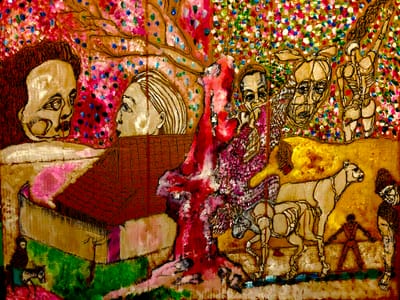Articles #social anthropology
He came in one day, didn’t have any notes, and said, “Today, I’m going to talk about Evolutionism, Functionalism, Structural-Functionalism, Structuralism and Marxism, and their relationships. And there was a rustling in the front row and a young voice said, “Sorry, Dr Gellner, that’s tomorrow. Today, you’re giving the third lecture on Islam and Politics.” And Ernest looked and said, “Just give me a moment.” He turned away and a minute later, turned round and gave a perfect third lecture on Islam and Politics. So that’s how Ernest was. Continuing the End Times series, Richard Marshall interviews Alan Macfarlane
Read MoreSome, particularly those influenced by Foucault in the world of disability studies, go further and suggest that eugenics itself created and structured our concept of normalcy during the late nineteenth century... I think this further view is implausible and try to make a case for an account of the relationship between eugenics and normalcy that blends together social and psychological factors more than is usually done in the literature.' Continuing the End Times series, Richard Marshall interviews Robert A. Wilson
Read MoreIn May this year there was a conference in Prague about 'Ernest Gellner's Legacy and Social Science Today'. Afterwards, participants and others interested in Gellner's ideas were invited to contribute to a series of essays here at 3:16 about Ernest Gellner's work in anthropology, philosophy and the social sciences. Starting off the series the anthropologist and historian Alan Macfarlane presents his reflections on the many dimensions of Gellner's work. The latest in the series is by Richard Marshall.
Read More

